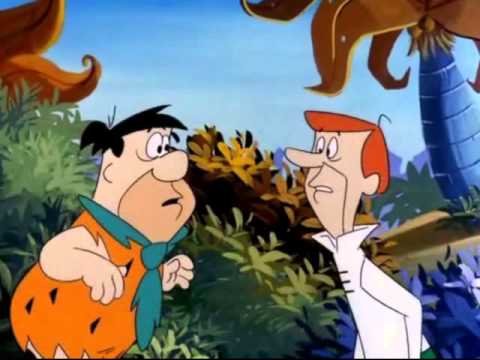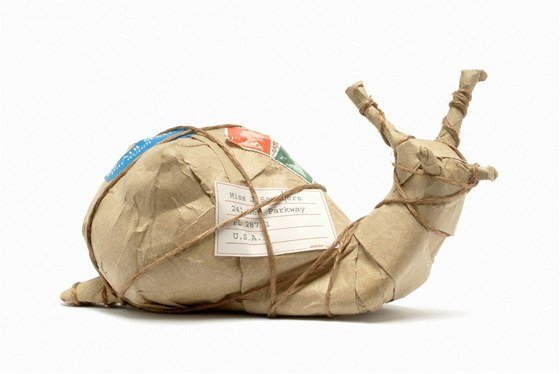The Waiting Game
This post was co-published at talanhorne.com.
With the advent of so many new technologies, many tasks have become instantaneous. And a lot of errands that were once time consuming are today accomplished at the touch of a button.
All essential goods can be bought without leaving home.
We can have real-time conversations with people in another hemisphere.
Sending a letter to someone---no matter where that person lives---takes only seconds.
And these things have become so ubiquitous that having to actually wait for anything feels like walking through a time warp into the stone age.

And while these bottlenecks keep disappearing, replaced year after year with better alternatives, there are some examples that resist the trend of making everything happen at the snap of our fingers.
Some of these still feel as though they should be obsolete, but they are in no danger of being abandoned, because there are some things that technology simply can't make up for.
And one of these areas, unfortunately, is human evaluation.
Smile, You're being Judged
Modern commerce requires partnerships of many different stripes. And as long as partnerships exist, everyone will be constantly scrutinized.

And that scrutiny takes time.
A good example of this is job interviews. From a completely objective standpoint, job interviews are nearly pointless. Spending a single hour (and often less than that) with a person, asking them technical questions about their field in no way tells the interviewer that the candidate is a good fit for the company. In fact, mere technical competency is often the least important metric for making a hiring decision. Naturally, the interviewer knows this. In the end, he'll make his choice largely through a gut judgment.
But he can't let his superiors know that.
If the judgment call is wrong, if the interviewer recommends a candidate who later causes problems for the company, he will then be forced to defend his hiring decision.
This is why the people doing the hiring at companies take their time, collect metrics, and compile data to supplement their hiring decision. Not because it causes them to hire better people (it doesn't), but because it gives them an excuse for making a bad call, should it come to that.
But Publishing is Different
I find myself in the unenviable position of playing the waiting game, hoping to hear back from potential agents and editors that they are interested in my work.

But this is not quite the same as a job interview. Yes, it is still about evaluating a human being, and thus takes time. But in submitting for publication, the candidate brings the product with him.
Meaning that the work is already largely done. The manuscript, of course, is not a finished product, and many revisions will happen, but the partnership being entered into is not an employer-employee situation. It is more like a deal between two companies rather than a deal between a company and an individual.
Still, the same waiting game is played.
Can This also be Modernized?
Yet the process of submitting a book for representation and/or publication has changed, somewhat, with the times.
Most important of these is electronic submissions. It took a long time for publishers and agencies to all allow electronic submissions. When I started researching the field in 2006, I was surprised to find many companies that still required snail mail submissions.

That nearly every operation in the book industry now requires email is a large step forward. But even email is largely getting replaced by online form submission.
A simple PHP or .cgi script can store author submissions in a database structure that simplifies the evaluation and response process. This software can allow the agent or editor to send 10,000 personalized responses with the click of a button.
I've only encountered a few agencies that use online forms, but they seem to be growing more popular. And that can only be a good thing.
But I wonder if they'd also be willing to adopt another change, which I've been thinking a lot about lately.
The First X Pages
Most submissions, whether to agencies or publishers, require a number of sample pages/chapters from the author's book. And this is only natural. How can they evaluate the author's writing unless they have a copy of said writing?
But---and this is the sticking point---the writing sample requested is, without exception, from the beginning of the book. They request either
- The first five pages.
- The first ten pages.
- The first twenty-five pages.
- The first chapter.
And there are reasons for this. The first pages and chapter are what the eventual reader will see for the first time, too. Since the reader's up-or-down purchase decision hinges on those parts of the book, it makes sense that the publisher's decision should go likewise. That is intuitive. That is traditional.
That is also not particularly scientific.
An acquisitions department, whether at a publisher or an agency, is merely a form of quality control. They serve as a filter, allowing the promising candidates in and keeping the unqualified ones out. Because of this, I sometimes wonder if they shouldn't follow the example of quality control teams in other industries.
As an example, let's use milk.

In a standard milk bottling plant, quality control officers will scrutinize outgoing bottles to make sure they are filled. They do not examine every milk bottle, as that would take forever and cost tons of money.
Instead, they take a random sampling of bottles produced by the plant, and test each of those randomly selected bottles. They test every bottle against previous statistics, and if, for example, they encounter several bottles that are only half filled, they know something has gone wrong, and they can alert the factory floor.
The key component here is that they test the bottles randomly, picking a certain number from each batch.
Can the Same be Done with Book Submissions?
It can. The only question is whether it should be done.
Imagine if an agent, instead of asking for the book's first chapter, requested the entire book manuscript with every submission. Most agents would never even consider this, because who has the time to read the full manuscript of every submission?
But let's suppose that instead of reading the entire manuscript, the agent used a piece of software to pick five random pages from the book and compile them into a document. The agent could then read this document to get a more complete picture of what was happening in the book. The randomness of the operation may cause them to miss certain information, but it would also give them a more complete picture of what the book is, without forcing them to become familiar with every page and chapter of the work.
There are problems with this idea, of course. In particular, the random nature of the sampling may bypass the best portions of the book (though judging a book by the first five pages is likely to do the same thing). It also creates a situation where an author could submit a manuscript twice, and get two completely different results from the experience.
These risks are real, but I believe the benefit of randomization may outweigh its cost. The literary gatekeepers would benefit from having a big-picture snapshot of a work. And requiring the author to provide a full manuscript with every submission means that the gatekeeper won't receive submissions for incomplete works.
Conclusion
I am at the mercy of the publishing industry, and I fully intend to play its games.
It probably does not want or need my suggestions. But I give those suggestions only because I hope they will genuinely make the agent's and editor's lives easier, even if these well intended ideas cannot be put into practice.
In any case, I'm a little glad to be in the position I am in. Playing the waiting game means that I have actually finished something. And I am proud of what I have accomplished.
I just have to hope it will pay off soon.
@talanhorne,
Until I found your story I have never thought publishing is this much of hard process! Anyway, I hope you will get a positive feedback soon! Wasting time of people like you is a big mistake for entire book communities!
Cheers~
@talanhorne sir...
Another wonderful and interesting post sir...
I'm always respect and interesting ur uncommon valuble ideas...
Execellent work sir...wel.done...
Happy writting....happy posting...
Happy steeming...
Cheers~~~
Very good friend.
I like your post
@SteemFlagRewards Comment Spam
@talanhorne sir...
Wow...smart ideas again sir...
Actually your writtern skill is execellent sir...I can always learn something from your blog...
Wel done and perfect work sir...
And I'm 1000% agree with u sir...
Good luck...
You're a good knowledge person about writing and it's very difficult.
Your job is excellent Blog.
Thanks @talanhorne
Have a nice day
@talanhorne sir...
I'm really like ur this idea..
"Smile, You're being Judged"...
Don't think it's possible.
I mean, it is possible, but you can never rely on it.
I've been trying to 'read' people by their body language and by the subtext of what they say since i was very young, even got a few books to learn it better. Its usually working, but sometimes not. However, you can always try to do this for yourself but never really change your attitude towards somebody because of it. You might be wrong and trust someone who looks innocent that can hurt you by the end, or behave badly or just ignore someone who really cares and just want the best for you.
People are always telling me after they know me for some time that at first they thought im a scary person. Which is.. lol. So yeah... :)
Wel done sir...
Welcome to everyday life!
I agree with you on job interview, if the choice is wrong they can always terminate. It’s useful to ask for references though.
When it comes to publishing, I’m not an expert in this, but I think that internet submission makes sense, even only first chapter. This could definitely speed up the process.
I like the way you compared the publication with milk segregation.
That could be an issue when it comes to publishing. I think they should read at least this first chapter to get an idea about this specific book and perhaps about the author. Just like you mentioned, it’s now a wait time. We are proud of you as well and I can’t wait when you let us know your publishing was successful.
Thank you for your encouragement. For a long time, I've been wanting to document my first publication as it happens, and Steemit feels like the right place to do it.
The site needs more success stories, and if I can demonstrate that good writing gets rewarded here, it might attract more people to the platform.
I hope I can pull it off.
very good writing. no matter what's the topic, you do a professional writing. excellent work @talanhorne
@resteemia
reteemed & upvoted
Good writting sir. Upvote and follow
@SteemFlagRewards Comment Spam